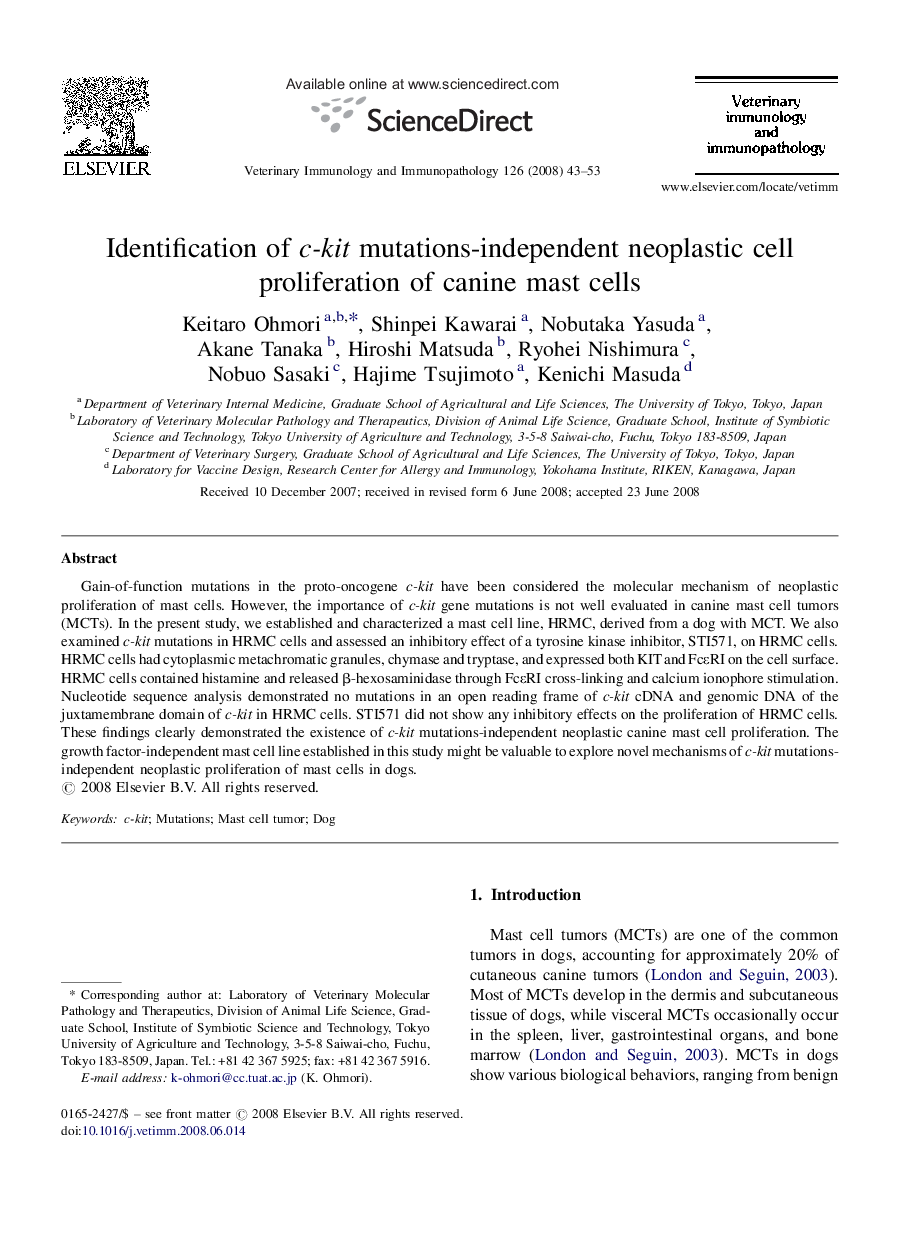| Article ID | Journal | Published Year | Pages | File Type |
|---|---|---|---|---|
| 2462881 | Veterinary Immunology and Immunopathology | 2008 | 11 Pages |
Gain-of-function mutations in the proto-oncogene c-kit have been considered the molecular mechanism of neoplastic proliferation of mast cells. However, the importance of c-kit gene mutations is not well evaluated in canine mast cell tumors (MCTs). In the present study, we established and characterized a mast cell line, HRMC, derived from a dog with MCT. We also examined c-kit mutations in HRMC cells and assessed an inhibitory effect of a tyrosine kinase inhibitor, STI571, on HRMC cells. HRMC cells had cytoplasmic metachromatic granules, chymase and tryptase, and expressed both KIT and FcɛRI on the cell surface. HRMC cells contained histamine and released β-hexosaminidase through FcɛRI cross-linking and calcium ionophore stimulation. Nucleotide sequence analysis demonstrated no mutations in an open reading frame of c-kit cDNA and genomic DNA of the juxtamembrane domain of c-kit in HRMC cells. STI571 did not show any inhibitory effects on the proliferation of HRMC cells. These findings clearly demonstrated the existence of c-kit mutations-independent neoplastic canine mast cell proliferation. The growth factor-independent mast cell line established in this study might be valuable to explore novel mechanisms of c-kit mutations-independent neoplastic proliferation of mast cells in dogs.
